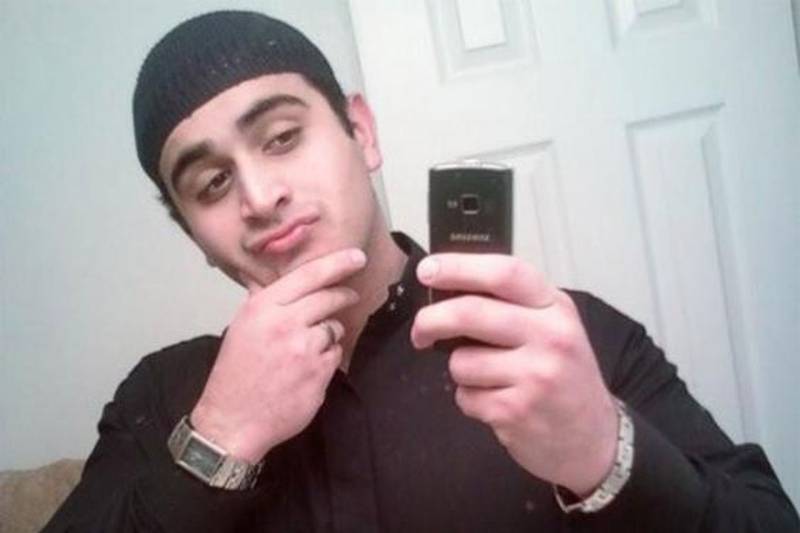Omar Mateen gunned down fifty people recently, and this time I didn’t apologise for Islam to anyone. I am sad and angry that innocent people died because of one man’s self-loathing and twisted, violent tendencies. I am disgusted that it was so easy for Mateen to buy what is essentially a Kalashnikov and go on a rampage, and that there are such hateful people in America and around the world that actually think this was a good thing, because the victims were largely homosexual. But none of this has anything to do with Islam, and everything to do with mental illness, because that is the difference between an ordinary person with bigoted ideas about the world and mass murderers.
Mental illness is on the rise all over the world. When we were younger nobody really talked about it, and I’m not sure that is because nobody knew about it and couldn’t put a label on it, or whether it wasn’t so prevalent. But hyper kids were just nuisances, not suffering from ADHD. Nervous people didn’t have Generalised Anxiety Disorder. Sad people were sad and slept a lot and maybe smoked secretly, but Pakistan for women is still like the 1950s in America, and there were (and still are) scores of bored, lonely and angry women stuck at home being told to smile when hubby comes home. Pakistanis are far behind on our own awareness of mental health issues, because there is a difference between nervousness and chronic anxiety, for example. Body dysmorphia—feeling unhappy with your body and the way it looks—is a real thing. Little or no awareness doesn’t mean the disease doesn’t exist, or that the condition can be brushed aside as exhaustion or hysteria. And if Pakistan, down in the Third World, doesn’t know much about it that’s one thing. How does bi-polar, violent Omar Mateen slip through the cracks, or Thomas Mair, the man who stabbed and shot Jo Cox last week?
It happens because governments, even welfare ones like the United Kingdom, are less and less concerned with the people. Democracy is a farce now, because the will of the people only extends towards the aesthetics of the vote: look, people making a choice out of their own free will! Hurrah, how noble it all is! Only it isn’t. The job of a government, more and more urgently, is to provide a bridge between the widening poles of money distribution in the countries they govern. The rich are getting richer and the poor are getting poorer, we keep hearing it, but what it means on the ground, out in real life, is that the chasm between a barely decent and a lavish life is expanding fast. Add to this an increasing disinterest in principles of honour, responsibility or justice, and woe betide you if you are on the wrong side of the gorge.
Multinationals don’t care about our children or our health; they want to sell us more food, grown from genetically-modified seeds, sprayed with chemicals and watered with poisoned water. Big pharma doesn’t want us to be healthy, they want to medicate us into insensibility while the world’s bacteria becomes more and more resistant to the medicines we take even when we don’t need them, but the medical industry tells us we must have them. And now the companies run the government, which is only too happy to comply. So the wars keep raging, the refugees keep drowning and the hungry, homeless, uneducated and genuinely diseased suffer, all over the world, because when it comes to tightening the fiscal belt, all governments, be it British or Pakistani, slash public health first, followed by education. Why pay doctors more money when you can buy more F-16s? Why make pens and pencils cheaper for families that can only afford to send one child out of many to school? In England, the National Health Service suffers and in America they will defend your right to buy guns, but will fight Obama Care tooth and nail because who needs affordable healthcare, huh?
So here we come, full circle, to Omar Mateen. He isn’t our problem—he’s American, born and raised, not religious at all, ethnically Afghan. But he represents what happens when the state fails its people. This is what happens when the people around you stop really seeing you. Every time something like this happens one wonders, where was this man’s family? Didn’t he have any friends? They often do. Sometimes we hear that the wife knew he was going to do it, the brother knew. They knew, technically, but they didn’t take it seriously but we don’t really listen. And that’s why mental health is so important. We don’t take it seriously and it is to our peril. We need to understand the difference between equity and equality. Equality is sameness, that everyone gets the same share of the pie. But equity is justice, and that means allocating resources according to greatest need. I don’t need a grant from the government to go to college, but my cook’s daughter does. Her need is greater than mine. Equality would dictate we both get a grant, but equity would mean she get most, or all of that money. For equity to exist, the concept of justice needs to exist, and sadly justice, like dignity and truth, are now like the tooth fairy—you’re childishly naïve to believe it exists. And yet, because the justice of equity is denied to the people who need it most, it sets into motion a cycle of injustice that snowballs, and people die. The thing to be angry about is that this can be prevented, all of it. It’s no conspiracy. It’s people, letting other people down.






